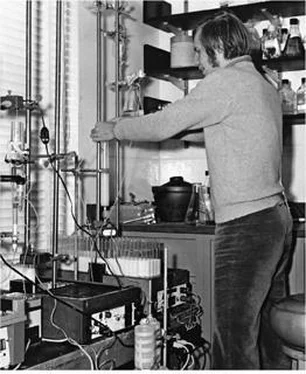James Watson - AVOID BORING PEOPLE - Lessons from a Life in Science
Здесь есть возможность читать онлайн «James Watson - AVOID BORING PEOPLE - Lessons from a Life in Science» весь текст электронной книги совершенно бесплатно (целиком полную версию без сокращений). В некоторых случаях можно слушать аудио, скачать через торрент в формате fb2 и присутствует краткое содержание. Жанр: Биографии и Мемуары. Описание произведения, (предисловие) а так же отзывы посетителей доступны на портале библиотеки ЛибКат.
- Название:AVOID BORING PEOPLE: Lessons from a Life in Science
- Автор:
- Жанр:
- Год:неизвестен
- ISBN:нет данных
- Рейтинг книги:5 / 5. Голосов: 1
-
Избранное:Добавить в избранное
- Отзывы:
-
Ваша оценка:
- 100
- 1
- 2
- 3
- 4
- 5
AVOID BORING PEOPLE: Lessons from a Life in Science: краткое содержание, описание и аннотация
Предлагаем к чтению аннотацию, описание, краткое содержание или предисловие (зависит от того, что написал сам автор книги «AVOID BORING PEOPLE: Lessons from a Life in Science»). Если вы не нашли необходимую информацию о книге — напишите в комментариях, мы постараемся отыскать её.
AVOID BORING PEOPLE: Lessons from a Life in Science — читать онлайн бесплатно полную книгу (весь текст) целиком
Ниже представлен текст книги, разбитый по страницам. Система сохранения места последней прочитанной страницы, позволяет с удобством читать онлайн бесплатно книгу «AVOID BORING PEOPLE: Lessons from a Life in Science», без необходимости каждый раз заново искать на чём Вы остановились. Поставьте закладку, и сможете в любой момент перейти на страницу, на которой закончили чтение.
Интервал:
Закладка:
With Derek Bok at Harvard commencement ceremony, June 1978
I went on to tell Derek that he and the Harvard Corporation should ask why MIT's life sciences now so completely outclass Harvard's. Past stinginess of Harvard deans played a big role in a problem that indiscriminate lavishness could not now fix. For far too long, University Hall had witlessly acted as if Harvard did not have to spend its own money to keep a place in the top league of science. The leadership assumed that Harvard's golden name would naturally move the federal government to fund not only the university's research but also the
creation of new facilities required to stay at the cutting edge. But brand names count for very little in science. And so, foolishly, Harvard sat back on its heels for about two decades while MIT smoothly integrated the privately funded Whitehead Institute into its biology operations and, under the never shy Eric Lander, created a huge DNA sequencing facility. Thus MIT became a major player in the Human Genome Project, the intellectual driveshaft for much of today's most exciting biology and medicine.Only belatedly had Harvard tried to enter the Genome Age by committing itself, as the twenty-first century began, to becoming strong in systems biology, a discipline so sprawling and unwieldy as to merit comparison to Enron's limitless expansions before its collapse into nothingness. In turn, the large MIT Center for Genome Research, thanks to the generosity of the California-based philanthropists Eli and Edythe Broad, was able to metamorphose in 2003 into an even more ambitious incarnation, the Broad Institute of MIT and Harvard. Its sleek Cambridge Center edifice across from MIT's Koch Biology Building would have looked as much at home in the Boston financial district. By diverting funds that might have been spent along Divinity Avenue, Harvard under Summers bought a say in how and by whom the Broad's massive genomic resources would be utilized. Within its doors, however, Harvard Yard seems light-years away.
Through such lavish commitments to joint ventures the pain of being shortchanged continued to be felt along Divinity Avenue. Still much rued was the failure in 2001 of the Faculty of Arts and Sciences to lure the clever Roderick MacKinnon, then in his late forties, away from Rockefeller. Longtime Harvard stalwart and X-ray structure whiz Steve Harrison, who was convinced that MacKinnon's crystallo-graphic studies on ion channels would earn him a Nobel Prize (he would indeed share the 2003 award in Chemistry), felt likewise certain that with the right inducement MacKinnon would return to Harvard, where he'd had a lab at the medical school before leaving for Rockefeller. The package offered to him by then-dean Jeremy Knowles, however, was not remotely competitive with Rockefeller's commitment. Upon seeing the dean's letter, in fact, MacKinnon's wife wondered
whether a mistake had been made in locating the decimal point. Depressed at Knowles's failure to think realistically big, Steve himself developed a case of wanderlust and spied a much brighter future for himself at Harvard Medical School. He wasted little time moving his highly productive X-ray crystallographic research group across the Charles.Several years before these events, a dinner party at Mark and Lucy Ptashne's spectacularly renovated huge house on Sparks Street had reunited me and Jeremy, whom I first knew when he was one of Oxford's stars in chemistry. Given his background, I had assumed he would use his new powers as Harvard's number two to brighten the future of science there. So I was slack-jawed as Jeremy told the assembled scientists and their spouses of the forthcoming boon to their work in the form of $1 million for supplies and equipment he would soon disburse among all the science departments. I blurted out that such a pittance would scarcely cover a small fraction of the scientists working at Cold Spring Harbor, adding that the miserly way Oxford was being run toward insignificance was no way for Harvard to keep pace with MIT. The stunned silence made me realize that no one had ever before witnessed such brazen disrespect for University Hall. Back at the Charles Hotel, I went to bed imagining Jeremy moving through a Max Beerbohm short story.
At this writing, University Hall is still under temporary stewardship. Larry Summers's firing of the East Asian studies scholar Bill Kirby as dean was not only the last straw of the Summers presidency; it also paralyzed Harvard administratively. But making new faculty appointments is not something that can wait—a short hiatus from hiring could do years of damage. Derek correctly understood that the job must be filled at once but also that the next president had the right to choose the next dean. So just prior to our appointment, Derek asked Jeremy to return temporarily to the helm of the Faculty of Arts and Sciences.
We now know that the eminent historian Drew Gilpin Faust will be the next president of Harvard. Who should the next dean be? Clearly it must be someone of commanding intellect and deep knowledge of the
Harvard scene. But even if he or she also possesses Henry Rosovsky's uncanny sense of knowing when not to say no, this person will be taking on a role now too large for one individual. For the sake of excellence in all areas of inquiry, Harvard should divide the responsibility into three more manageable groupings—science, humanities, and social sciences. Each should be led by a distinguished academic with substantial powers of the purse. Only the capacity to judge and pay market rates can assure a better than 50-50 chance that the first-choice candidates of the respective ad hoc committees will accept a Harvard offer.To be certain of success overall, Harvard salaries must once again be much higher than those of serious competitors. To get stars, you must offer star salaries. The best of academia no longer will come to Harvard because it is Harvard. No one goes into scientific research to get rich, but one doesn't undertake it to evade the comforts of life. Living close enough to Harvard Yard to enjoy its ambiance and diversions is now beyond the means of new Harvard appointees with families unless the faculty salary is matched by another of the same magnitude. Paying top salaries is well within the means of the largest university endowment on earth—provided that it abandon the almost Soviet-style fantasy of the Allsten expansion, at present envisioned to cover the area of twenty-five football stadiums.
Science that leads over the horizon depends on gathering the best minds and enabling them to do what the best minds naturally seek to do: pursue the most thrilling questions of the time. Such minds inevitably draw their like, and the rest takes care of itself. The dividends of such greatness, however, go beyond what is to be gained by winning the next scientific race. They extend to the enrichment of the student body by giving them a broader appreciation of intellectual values.
Harvard's new president will need to see paramount among her goals the seeking of potential greatness for its undergraduates through equipping them with the best ideas of the past, honest assessments of the world today, and realistic expectations about the future. This was Robert Hutchins's vision for the University of Chicago when in 1929, at age thirty-one, he became its president. His charismatic impact
reached its apogee in the 1940s as great books and ideas became the mainstays of undergraduate education along the Midway. Though his successors, pressed to maintain a viable inflow of new undergraduates, saw the need for partial retreat from the purity of his vision, those educated in the primacy of great thoughts never doubted that they were the chosen people.Even now, mention of the University of Chicago to educational leaders not directly exposed to Hutchins or to his immediate successors elicits wistful admissions that Hutchins largely had it right when he branded much of American higher education as a prolonged mismatch of triviality and ignorance. During our meeting Derek allowed that despite the failure of Hutchins's ideas to take hold at any other major American university, his was the only past American university presidency that educators still actively talk about. While the Ivy League turns out graduates who for the remainder of their lives seek out one another, the University of Chicago still strives to see its graduates leave with lifetime-long ideas and a passion to see the world as it is. Parrington's Main Currents in American Thought and The Brothers Karamazov had much more impact on my life than any of my University of Chicago classmates.
Читать дальшеИнтервал:
Закладка:
Похожие книги на «AVOID BORING PEOPLE: Lessons from a Life in Science»
Представляем Вашему вниманию похожие книги на «AVOID BORING PEOPLE: Lessons from a Life in Science» списком для выбора. Мы отобрали схожую по названию и смыслу литературу в надежде предоставить читателям больше вариантов отыскать новые, интересные, ещё непрочитанные произведения.
Обсуждение, отзывы о книге «AVOID BORING PEOPLE: Lessons from a Life in Science» и просто собственные мнения читателей. Оставьте ваши комментарии, напишите, что Вы думаете о произведении, его смысле или главных героях. Укажите что конкретно понравилось, а что нет, и почему Вы так считаете.












